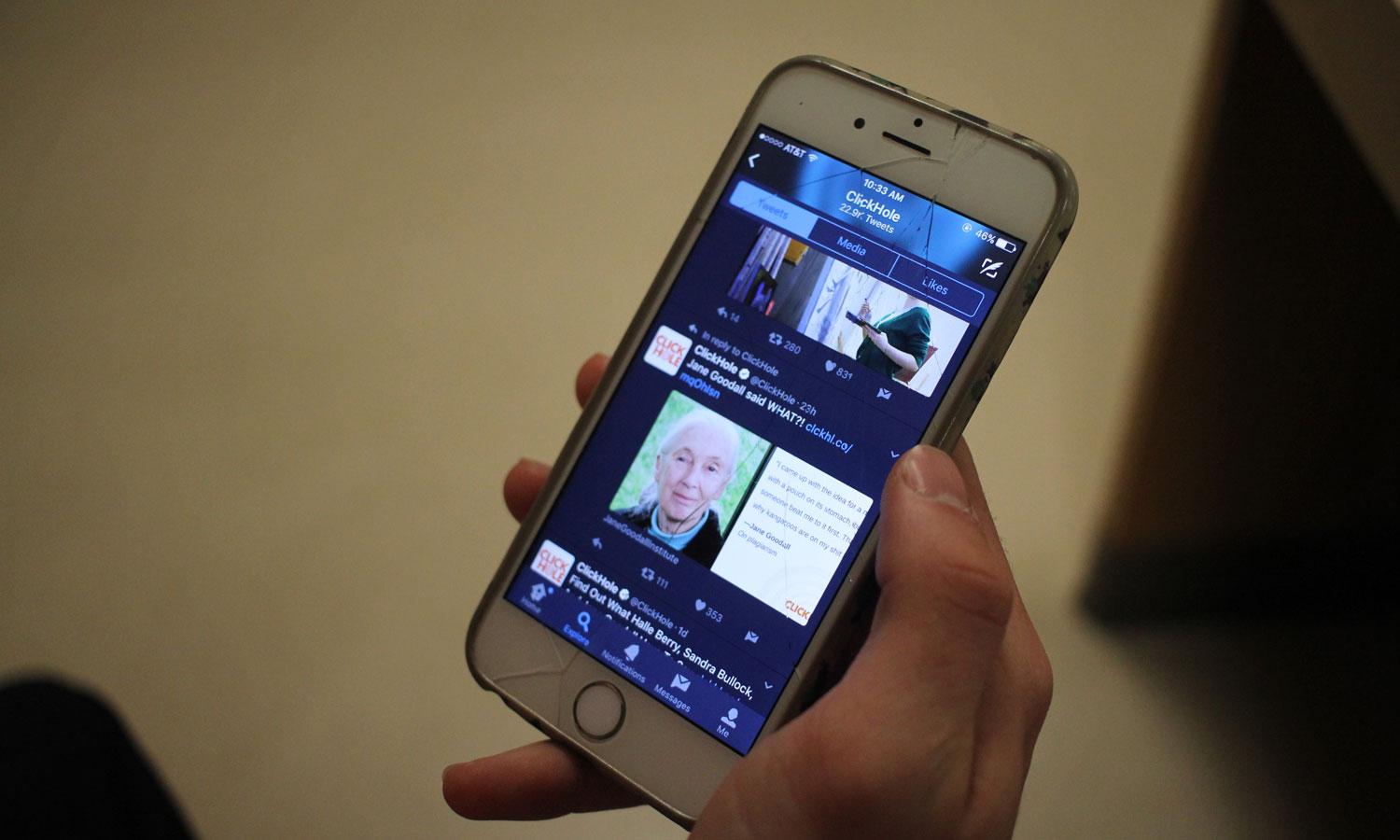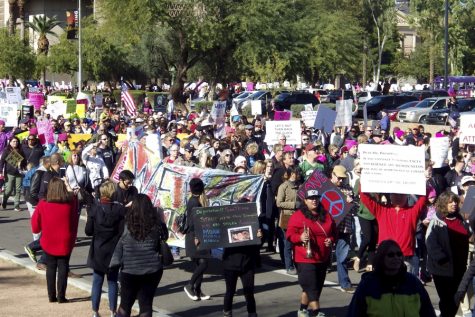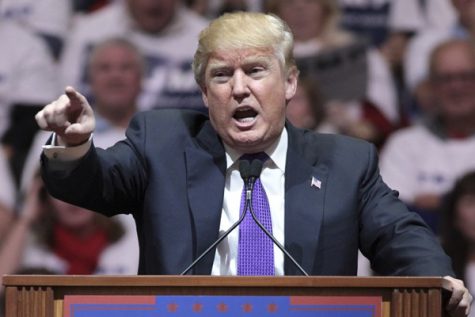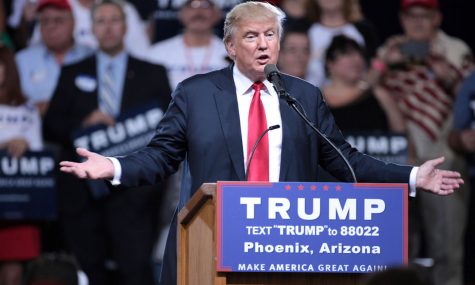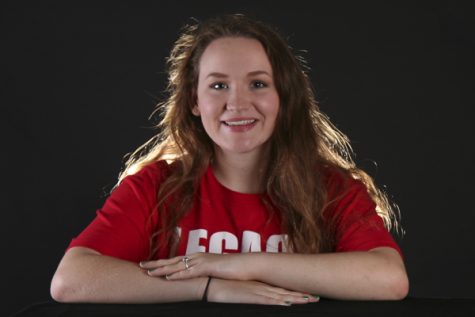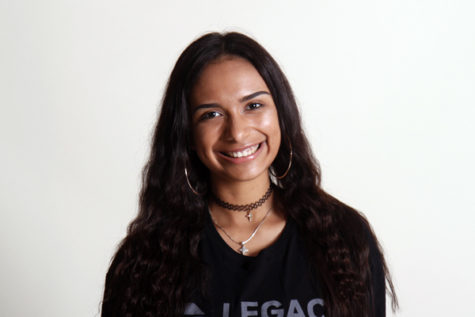With social media being one the most influential sources of information distribution throughout the world, junior Mackenzie Mohr refuses to believe everything on the screen.
Misinformation rapidly spreads on platforms like Twitter and Facebook. Comments and personal opinions are often mistaken for truth and become like a game of telephone where the original phrase or news has been distorted several times. Mohr believes social media takes advantage of the audience’s attention, giving them entertainment news rather than the truth.
“I think it’s social media’s responsibility to block out as much fake news as possible,” Mohr said. “Preventing fake news will not only reduce rumors that’ll be spread across the community but also decrease bad reputation the social media gives to its viewers.”
Studies show people who get their news on social media may have been looking at more fake stories than real ones. Facebook was heavily accused for spreading fake news — accidental and purposeful — and influencing the election. To stop it, college students from the University of Massachusetts developed a program that checks the validity of sources by checking multiple sites for the same story.
“I think it’s great what the college students are doing to protect the information that goes out. It’s a big mistake to rely only on social media for stories,” geography teacher Ms. Jodie Esaili said. “I try to tell [the students] to use caution as headlines and storylines can be manipulated and are often misleading or outright false.”
It is the users’ responsibility to distinguish lies and truth.
— McGee
Social media platforms run on algorithms, programs that decide what posts you see on your news feed or timeline. It uses data like who and how often people interact with posts instead of showing all posts in chronological order. For example, on Twitter, when multiple friends like a post, it pops up on your feed. On YouTube, an algorithm decides which videos are suggested when you search.
“It is the users’ responsibility to distinguish lies and truth,” senior Peyton McGee said. “However, news should be verified as credible on social media sites.”
Celebrity death hoaxes are just one example of how easily and rapidly fake news can be spread. Jackie Chan (twice in one year), Cher, Tony Hawk and Macaulay Culkin, who played Kevin from Home Alone, have all supposedly died according to rumors starting on Twitter. Junior Ryan Rutherford believes the spreading of fake news only causes more problems on social media.
“Fake news is everywhere: Twitter, Instagram,and Facebook, but how did it get there? It may have been a joke someone took seriously and ranted about,” Rutherford said. “It snowballed way out of proportion, and everyone is talking about something that isn’t true. It causes a problem because people believe everything they see and couldn’t care less to fact check or see if even any bit of it is true.”
Fake news doesn’t just affect entertainment stories for teenagers on social media but also influences elections and can hurt the real world. The German government wants to fine Facebook or compensate those affected by the spread of misinformation in fear of their election being tampered with. When President Trump was still just the Republican nominee, he kept saying he was worried the election would be rigged. After taking advantage of these rumors that quickly spread among voters, Cameron Harris wrote and published a fake news article saying that there were fraudulent votes for Hillary Clinton in a warehouse in Ohio. Some, like Mr. Craig Rabalais, AP economics and government teacher, only get their information from trusted news sources, which could result in other issues.
“The problem with the media is they try to perpetuate problems that possibly aren’t problems just to stir viewership,” Mr. Rabalais said. “[The news networks] pick and choose what to show.”
The problem with the media is they try to perpetuate problems that possibly aren’t problems just to stir viewership.
— Mr. Rabalais
On Twitter, users can post video clips or news stories while making commentary at the same time. When other users share the opinions, lies or summaries of events that could be untruthful, information and public opinion can become distorted. Often, users only watch clips of videos or edited videos that were meant to leave out information necessary for forming full and true opinions. When these false comments go viral and are misinterpreted, fake news and false opinions are distributed. If users are only reading the tweets and comments to acquire their information about current events without gathering all the facts, they have a distorted view. Senior Matt Ake ensures the credibility of what he sees online by fact checking.
“Anytime there are political issues, I double check both sides: left and right, and then, I double check with outside sources, typically foreign news, before I form an opinion that I feel strongly about,” Ake said.
Because fake news often builds on small bits of truth, fact checking anything that seems uncertain on social media is really important. Be aware of fake sites, users and differentiating fact from opinion.
“It ultimately falls on the users to form their own opinions and to do their research,” Ake said. “Before the reader speaks about the topic, they should be well informed and seek out other sources to verify information.”


